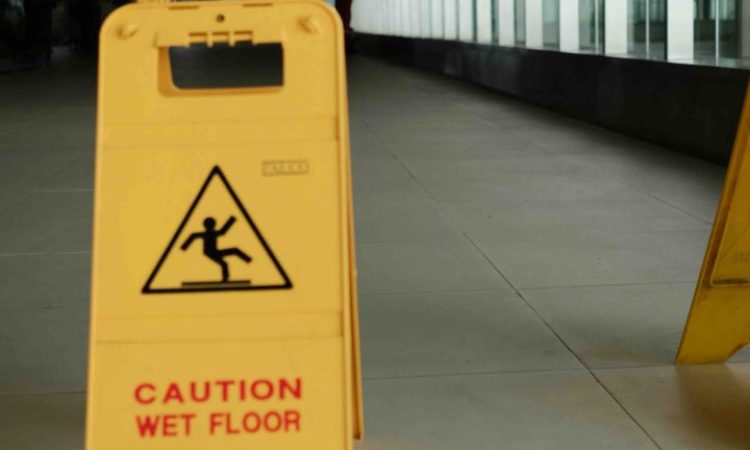
Understanding the Judicial College Guidelines and How Hopkins Solicitors Value Injuries in Personal Injury Claims
At Hopkins Solicitors, one of the most common questions our Personal Injury Team is asked is: “How much compensation will I receive for my injury?”. It’s an understandable concern if you’ve been hurt due to someone else’s negligence, you want reassurance that you’ll be fairly compensated for your pain, suffering, and the impact on your life.
The truth is that every case is unique. The value of your claim depends on the specific circumstances, including the type of injury, how severe it is, how long it takes you to recover, and whether it has lasting effects. To help ensure fairness and consistency across the country, lawyers, judges, and insurers rely on a set of guidelines known as the Judicial College Guidelines (JCG).
This article explains what the Judicial College Guidelines are, how they are used, and how we at Hopkins Solicitors combine these guidelines with our expertise and understanding of your personal circumstances to value your claim accurately.
What Are the Judicial College Guidelines?
The Judicial College Guidelines are a publication produced by the Judicial College, the body responsible for training judges in England and Wales. They provide a framework for valuing compensation in personal injury claims.
The guidelines set out broad compensation brackets for a wide range of injuries, everything from whiplash, broken bones, and scarring, through to life-changing injuries such as brain damage, amputations, and psychiatric harm. Each category of injury is broken down into levels of severity, with suggested ranges of compensation, general damages, that might be awarded.
For example:
- A minor wrist fracture that heals within a few months will fall into a lower compensation bracket.
- A severe wrist injury that causes long-term disability or loss of function will fall into a much higher bracket.
These guidelines are updated regularly to reflect changes in case law, inflation, and medical understanding. The most recent edition is the 17th edition which came into effect in 2024.
Why Do We Use the Guidelines?
The purpose of the Judicial College Guidelines is to create consistency. If two people suffer similar injuries in different parts of the country, they should broadly receive similar levels of compensation. Without guidelines, there could be wide variations, leading to unfairness.
For solicitors, insurers, and judges, the guidelines are an essential reference point. They don’t dictate the exact figure you will receive, but they provide a benchmark to ensure that compensation awards fall within a fair and reasonable range.
How Hopkins Solicitors Use the Guidelines
We don’t just look at the guidelines in isolation. While the Judicial College Guidelines provide a starting point, your case is about you, your life, your recovery, and your future.
When valuing your claim, our Personal Injury Team will consider:
- Medical Evidence: We obtain independent medical reports from trusted experts who assess your injuries and give a professional opinion on your recovery and prognosis.
- Severity of the Injury: We look at the exact nature of the injury for example, a broken ankle may sound straightforward, but the impact will vary greatly depending on whether you make a full recovery or are left with long-term pain and mobility issues.
- Recovery Period: How long it takes you to get back to normal daily activities is a major factor in valuing your claim. A quick recovery usually means a lower award, whereas long-term or permanent problems increase the value.
- Impact on Your Life: We always take into account how the injury has affected your ability to work, care for your family, or hobbies and activities. Even if two people suffer the same physical injury, the impact can be very different.
- Comparable Case Law: In addition to the guidelines, we also look at previous cases decided by the courts to ensure we are maximising the compensation you receive.
General Damages vs. Special Damages
The Judicial College Guidelines specifically apply to general damages which is compensation for pain, suffering, and loss of amenity (the impact on your ability to live life as you did before the accident). However, your total compensation also includes special damages, which are tailored to your personal circumstances. These cover:
- Lost earnings (including future loss of earnings if you cannot return to your job)
- Medical expenses, such as physiotherapy or surgery
- Travel expenses to and from hospital appointments
- Costs of care or assistance, whether from professionals or family members
- Adaptations to your home or vehicle if your injury causes long-term disability
At Hopkins, we work carefully with you to make sure every financial impact of your injury is considered and included in your claim.
An Example: Valuing a Back Injury Claim
To show how this works in practice, here is an example of a back injury and how compensation would be assessed.
According to the Judicial College Guidelines:
- Minor back injuries that heal within a few months might attract an award of up to around £5,000.
- Moderate back injuries involving damage to discs or ligaments, with ongoing pain, might attract between £15,000 and £33,000.
- Severe back injuries causing permanent disability could attract awards of £85,000 or more.
But these figures are only part of the story. Imagine two different clients:
- Client A is a young office worker who suffers a moderate back injury, cannot work for six months, and has to give up playing football. In addition to general damages, they may claim special damages for lost wages, physiotherapy, and the loss of enjoyment of their sporting activities.
- Client B is a self-employed builder with the same level of injury, but the impact is greater and they cannot return to heavy labour and must retrain. Their special damages claim will be much higher, covering long-term loss of earnings and retraining costs.
This is why it’s so important to have experienced solicitors on your side. We go beyond the figures in the guidelines to make sure your compensation reflects the full impact of your injury.
How We Work With You
We believe in a personal, client-focused approach. From the very first consultation, we will:
- Listen carefully to your story and how the accident has affected you.
- Gather the best possible evidence to support your claim.
- Use the Judicial College Guidelines to establish a fair benchmark.
- Go further by including all your financial losses and future needs.
- Keep you updated every step of the way, so you always know how your claim is progressing.
Our aim is to make sure you don’t just receive compensation, but that you receive the right amount of compensation tailored to you and your circumstances.
Why Choose Hopkins Solicitors?
We are proud to have supported injured people across Nottinghamshire and beyond for decades. Clients choose us because:
- We are approachable and explain the law in plain English, avoiding jargon where at all possible.
- We are specialists in personal injury claims, with experience in everything from minor accidents to catastrophic injuries.
- We are committed to transparency and fairness, and you will always know where you stand.
- We fight tirelessly to achieve the best outcome for every client.
The Judicial College Guidelines are an important tool, but they are only part of the picture. At Hopkins, we use our skill, experience, and dedication to ensure your compensation reflects the true impact of your injury.
If you’ve been injured in an accident that wasn’t your fault, you may be entitled to compensation. Understanding how claims are valued can help you feel more confident about starting the process.
At Hopkins Solicitors, we’ll guide you through every stage, from using the Judicial College Guidelines as a benchmark, to building a case that reflects the unique impact your injury has had on your life.
Contact our Personal Injury Team today for clear, honest advice and a free initial consultation. Let Hopkins Solicitors help you secure the compensation you deserve.
Request a CallbackRelated Articles
-

When Real Life Goes Wrong at Work
Staying Safe and Getting Justice Accidents at work remain a pressing legal and social issue in the UK. Despite decades…
-

Accidents at Work Your Right to Claim Compensation
Accidents at work happen far more often than many people realise. Every year, thousands of employees across the UK are…
-

Why 2026 Is a Pivotal Year for Personal Injury Claims
Personal injury law in the UK has changed significantly over the last few years. From government reforms to changing patterns…